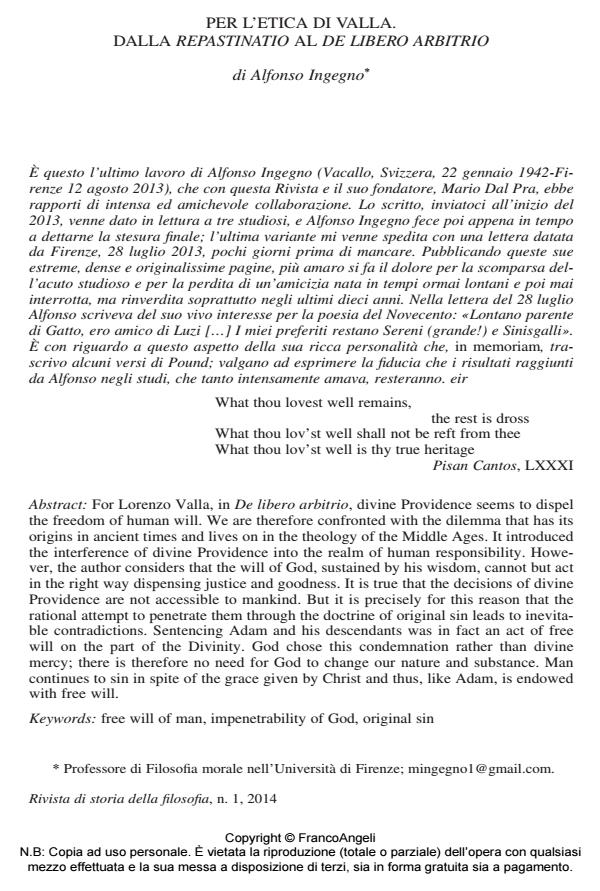Per l’etica di valla. Dalla Repastinatio al de libero arbitrio
Journal title RIVISTA DI STORIA DELLA FILOSOFIA
Author/s Alfonso Ingegno
Publishing Year 2014 Issue 2014/1
Language Italian Pages 30 P. 27-56 File size 614 KB
DOI 10.3280/SF2014-001002
DOI is like a bar code for intellectual property: to have more infomation
click here
Below, you can see the article first page
If you want to buy this article in PDF format, you can do it, following the instructions to buy download credits

FrancoAngeli is member of Publishers International Linking Association, Inc (PILA), a not-for-profit association which run the CrossRef service enabling links to and from online scholarly content.
For Lorenzo Valla, in De libero arbitrio, divine Providence seems to dispel the freedom of human will. We are therefore confronted with the dilemma that has its origins in ancient times and lives on in the theology of the Middle Ages. It introduced the interference of divine Providence into the realm of human responsibility. However, the author considers that the will of God, sustained by his wisdom, cannot but act in the right way dispensing justice and goodness. It is true that the decisions of divine Providence are not accessible to mankind. But it is precisely for this reason that the rational attempt to penetrate them through the doctrine of original sin leads to inevitable contradictions. Sentencing Adam and his descendants was in fact an act of free will on the part of the Divinity. God chose this condemnation rather than divine mercy; there is therefore no need for God to change our nature and substance. Man continues to sin in spite of the grace given by Christ and thus, like Adam, is endowed with free will.
Keywords: Free will of man, impenetrability of God, original sin
- Il contributo di Alfonso Ingegno agli studi su filosofia e religione tra rinascimento ed Etá Moderna Francesca Lazzarin, in RIVISTA DI STORIA DELLA FILOSOFIA 3/2015 pp.593
DOI: 10.3280/SF2015-003006
Alfonso Ingegno, Per l’etica di valla. Dalla Repastinatio al de libero arbitrio in "RIVISTA DI STORIA DELLA FILOSOFIA" 1/2014, pp 27-56, DOI: 10.3280/SF2014-001002